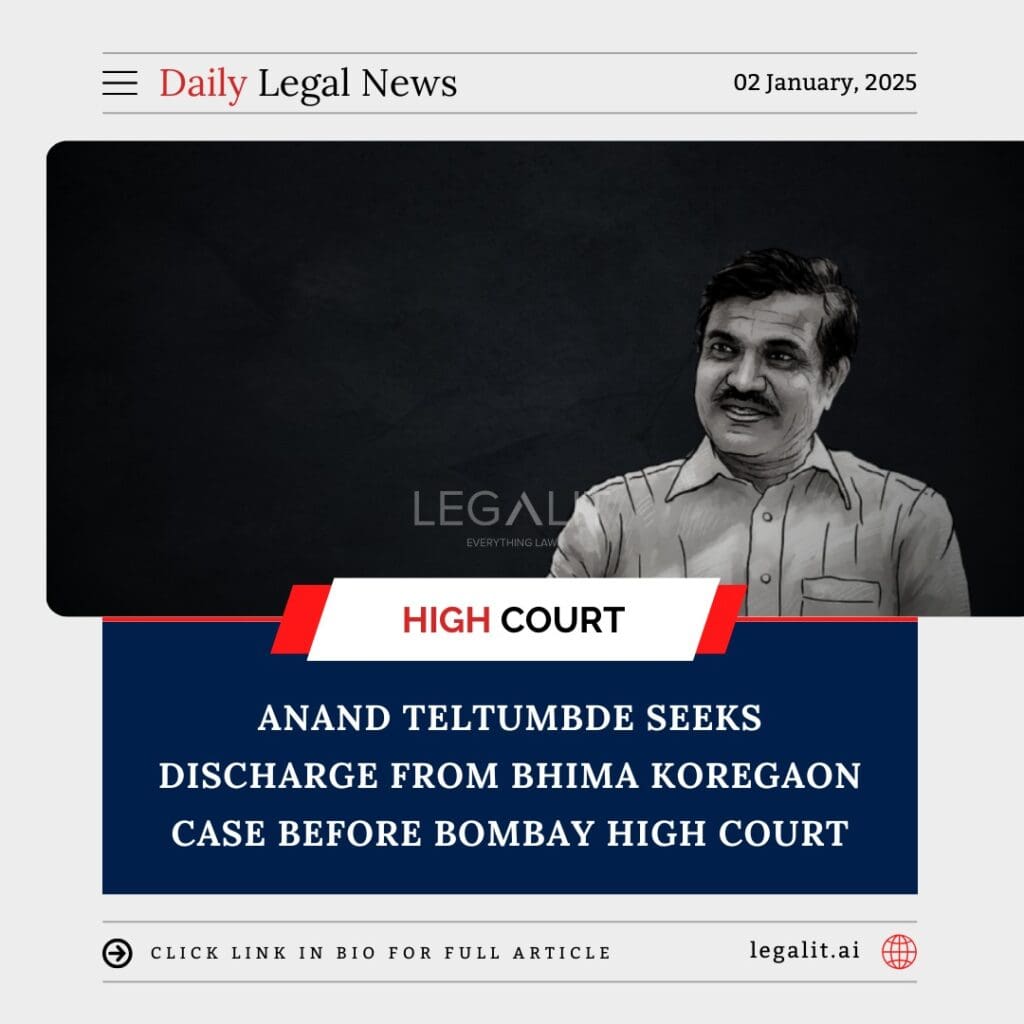
Anand Teltumbde, a prominent academic and social activist, has filed a petition before the Bombay High Court seeking to be discharged from the charges in the Bhima Koregaon case. Teltumbde, who has been accused in connection with the violence that occurred in Bhima Koregaon in 2018, argues that the evidence against him is insufficient and that he should be freed from the charges.
1. Background of the Bhima Koregaon Case
The Bhima Koregaon violence erupted in January 2018, following clashes between Dalit and Maratha groups during an event marking the 200th anniversary of the Battle of Bhima Koregaon. The violence resulted in several injuries and one death. The case, which has become one of the most significant and controversial legal matters in recent years, has seen numerous activists, intellectuals, and human rights defenders being arrested on charges related to inciting violence, conspiring against the government, and being associated with banned organizations.
Anand Teltumbde, a well-known academic and writer, was arrested in April 2020 for his alleged involvement in the violence. He has consistently maintained his innocence, claiming that he has been targeted for his activism and for his outspoken views on caste discrimination and human rights issues.
2. Teltumbde’s Petition for Discharge
In his petition before the Bombay High Court, Teltumbde argues that the charges framed against him are based on flimsy evidence and that there is no direct link between his actions and the violence that took place in Bhima Koregaon. He has requested the court to discharge him from the case, as he believes that the charges are politically motivated and part of an attempt to silence dissenting voices in India.
The petition seeks to challenge the validity of the evidence presented by the prosecution, asserting that the materials used against him, including electronic communications and documents, are either fabricated or misinterpreted. Teltumbde’s legal team has called for the case to be dismissed, citing the lack of concrete evidence to justify his continued prosecution.
3. Political and Social Context
The Bhima Koregaon case has sparked intense political and social debates, with many supporters of the accused claiming that they are victims of a government crackdown on dissent. The case has become a flashpoint for discussions on the broader issues of free speech, activism, and human rights in India.
Teltumbde, who is also a prominent scholar of Dalit and marginalized communities, has been a vocal critic of the Indian government’s policies, especially regarding caste discrimination and the treatment of marginalized groups. His arrest, along with others accused in the Bhima Koregaon case, has been seen by many as part of a larger pattern of silencing voices of opposition.
4. Legal Strategy and Arguments
Teltumbde’s legal team has raised several points in their petition. The primary argument is that the evidence against him does not establish a direct connection between his activities and the violence in Bhima Koregaon. Additionally, the defense argues that the charges related to his alleged links with banned organizations are baseless, and that Teltumbde has always advocated for peaceful protest and academic discourse.
Teltumbde’s petition also highlights procedural irregularities in the investigation and the charges framed against him, questioning the legality of his arrest and the conduct of the police during the investigation. His legal team is hopeful that the Bombay High Court will consider these points and rule in his favor.
5. Implications of the Case
The outcome of Teltumbde’s petition before the Bombay High Court will have significant legal and political implications. If the court rules in his favor, it may set a precedent for other accused in the Bhima Koregaon case who are seeking discharge or bail. It could also raise broader questions about the use of anti-terrorism laws and the criminal justice system in politically sensitive cases.
The case has attracted attention not only from legal and political circles but also from international human rights organizations, many of whom have expressed concerns about the fairness of the trial and the treatment of the accused.
Conclusion
As Anand Teltumbde’s petition moves forward in the Bombay High Court, the eyes of the legal community, activists, and the public are closely watching for any developments. Teltumbde’s fight for discharge is emblematic of the larger struggle over the boundaries of free speech, political dissent, and the protection of human rights in India. The court’s decision will likely have far-reaching consequences for the Bhima Koregaon case and the broader issues of justice and activism in the country